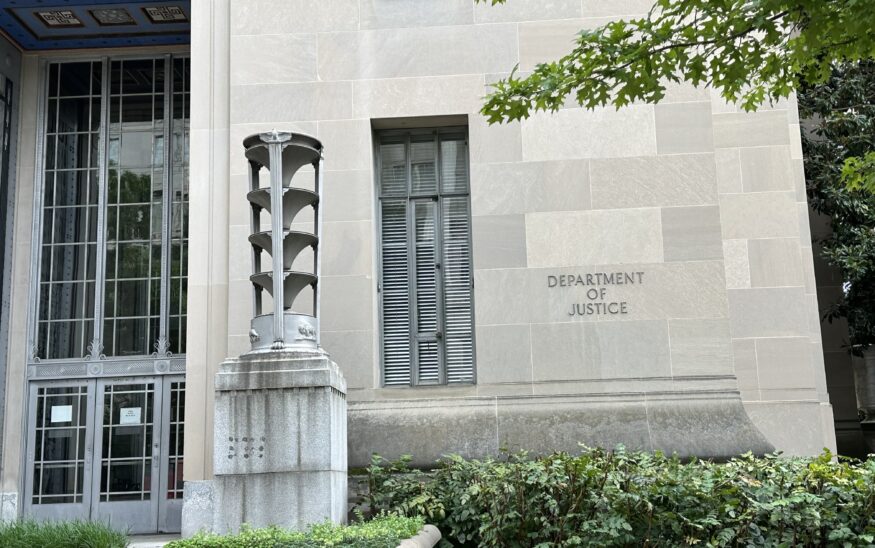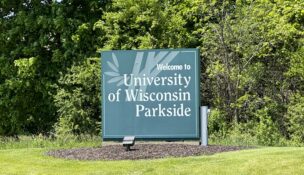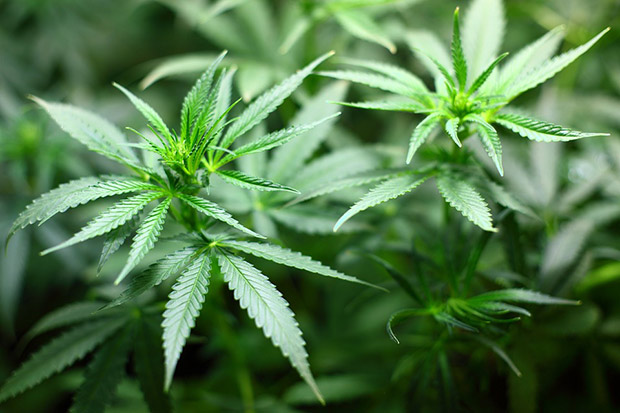Justice Department strengthens efforts, builds partnerships to address the crisis of Missing or Murdered Indigenous Persons
By: WISCONSIN LAW JOURNAL STAFF//May 6, 2024//
Justice Department strengthens efforts, builds partnerships to address the crisis of Missing or Murdered Indigenous Persons
By: WISCONSIN LAW JOURNAL STAFF//May 6, 2024//
Justice Department officials announced Friday that Gregory J. Haanstad, United States Attorney for the Eastern District of Wisconsin, joins the Department of Justice and our partners across the federal government, as well as people throughout American Indian and Alaska Native communities, in recognizing May 5 as National Missing or Murdered Indigenous Persons (MMIP) Awareness Day.
In recognition of MMIP Awareness Day, Attorney General Merrick B. Garland announced stepped up efforts to tackle the MMIP and human trafficking crisis in American Indian and Alaska Native communities, and other pressing public safety challenges like the fentanyl crisis which have had a disproportionate impact on Native Americans, exacerbating violence and addiction in already vulnerable communities.
“There is still so much more to do in the face of persistently high levels of violence that Tribal communities have endured for generations, and that women and girls, particularly, have endured,” said Attorney General Merrick B. Garland.
“In carrying out our work, we seek to honor those who are still missing, those who were stolen from their communities, and their loved ones who are left with unimaginable pain. Tribal communities deserve safety, and they deserve justice. This day challenges all of us at the Justice Department to double down on our efforts, and to be true partners with Tribal communities as we seek to end this crisis,” Garland added.
“The United States Attorney’s Office for the Eastern District of Wisconsin is proud to work with all of our partners – federal, state, local, and tribal governments and non-governmental organizations – to do everything possible to prevent and respond to cases of missing or murdered Indigenous people,” said Haanstad.
“We are committed to pursuing justice for and providing support to victims and their loved ones,” Haanstad added.
FBI officials agreed.
“The FBI remains unwavering in our pledge to work with our law enforcement partners to address the violence that has disproportionately harmed Tribal communities and families,” said FBI Director Christopher Wray.
“We will continue to prioritize our support of victims and will steadfastly pursue investigations into the crime impacting American Indian and Alaska Native communities,” Wray added.
DEA officials agreed.
“DEA’s top priority is protecting all communities from deadly drugs, like fentanyl, and drug related violent crime,” said DEA Administrator Anne Milgram.
“We know that no community has been spared from these deadly threats and we are committed to keeping Tribal communities safe,” Milgram added.
Justice Department Prioritization of MMIP Cases
Last July, the Justice Department announced the creation of the Missing or Murdered Indigenous Persons (MMIP) Regional Outreach Program, which permanently places 10 attorneys and coordinators in five designated regions across the United States to aid in the prevention and response to missing or murdered Indigenous people. The five regions include the Northwest, Southwest, Great Plains, Great Lakes, and Southeast Regions. The MMIP regional program prioritizes MMIP cases consistent with the Deputy Attorney General’s July 2022 directive to U.S. Attorneys’ offices promoting public safety in Indian country.
The program fulfills the Justice Department’s promise to dedicate new personnel to MMIP consistent with Executive Order 14053, Improving Public Safety and Criminal Justice for Native Americans and Addressing the Crisis of Missing or Murdered Indigenous People, and the Department’s Federal Law Enforcement Strategy to Prevent and respond to Violence Against American Indians and Alaska Natives, Including to Address Missing or Murdered Indigenous Persons issued in July 2022.
There are five federally recognized tribes in the Eastern District of Wisconsin, each of which has a unique, vibrant, and rich culture. The U.S. Attorney’s Office has resources, including a Tribal Liaison, dedicated to promoting safety and security on tribal lands and in tribal communities. Information on charged cases can be found here: https://www.justice.gov/usao-edwi/pr.
Not Invisible Act Commission Response
The Department’s work to respond to the MMIP crisis is a whole-of-department effort. In March, the Departments of Justice and the Interior released their joint response to the Not Invisible Act Commission’s recommendations on how to combat the MMIP and human trafficking crisis. The NIAC response, announced by Attorney General Garland during a visit to the Crow Nation, recognizes that more must be done across the federal government to resolve this longstanding crisis and support healing from the generational traumas that Indigenous peoples have endured throughout the history of the United States.
Addressing Violent Crime and the Fentanyl Crisis in Indian Country
As noted in the joint response to the NIAC, research suggests that certain public safety challenges faced by many American Indian and Alaska Native communities—including disproportionate violence against women, families, and children; substance abuse; drug trafficking; and labor and sex trafficking—can influence the rates of missing AI/AN persons.
According to officials, Fentanyl poisoning and overdose deaths are the leading cause of opioid deaths throughout the United States, including Indian county, where drug-related overdose death rates for Native Americans exceeds the national rate.
Therefore, federal law enforcement components are ramping up efforts to forge stronger partnerships with federal and Tribal law enforcement partners to address violent crime and the fentanyl crisis, which exposes already vulnerable communities to greater harm.
Accessing Department of Justice Resources
Over the past year, the Department awarded $268 million in grants to help enhance Tribal justice systems and strengthen law enforcement responses. These awards have also gone toward improving the handling of child abuse cases, combating domestic and sexual violence, supporting Tribal youth programs, and strengthening victim services in Tribal communities.
For additional information about the Department of Justice’s efforts to address the MMIP crisis, please visit the Missing or Murdered Indigenous Persons section of the Tribal Safety and Justice website.
Legal News
- NAACP: No consequences for UWM Pro-Palestinian protesters shows ‘bias’ and ‘privilege’
- New complaints filed against Northwestern over Kenosha football hazing scandal
- Justice Department submits proposed regulation to reschedule marijuana
- Reckless driving on Brown Deer Road results in fatal collision
- Lavinia Goodell 150th Anniversary commemoration to be held June 17
- WisGOP reacts to vice president’s Wisconsin visit
- Former prosecutor suspended for unwelcome contact during legal conference
- One Wisconsin Attorney’s misconduct ‘in a league of its own’
- Wisconsin election fraud charge issued from November 2022 general election
- Indigenous consultant accuses NHL’s Blackhawks of fraud, sexual harassment
- Man pleads guilty in theft of Arnold Palmer green jacket, other Masters memorabilia from Augusta
- KS Governor cites competition concerns while vetoing measure for school gun-detection technology
WLJ People
- Power 30 Personal Injury Attorneys – Russell Nicolet
- Power 30 Personal Injury Attorneys – Benjamin Nicolet
- Power 30 Personal Injury Attorneys – Dustin T. Woehl
- Power 30 Personal Injury Attorneys – Katherine Metzger
- Power 30 Personal Injury Attorneys – Joseph Ryan
- Power 30 Personal Injury Attorneys – James M. Ryan
- Power 30 Personal Injury Attorneys – Dana Wachs
- Power 30 Personal Injury Attorneys – Mark L. Thomsen
- Power 30 Personal Injury Attorneys – Matthew Lein
- Power 30 Personal Injury Attorneys – Jeffrey A. Pitman
- Power 30 Personal Injury Attorneys – William Pemberton
- Power 30 Personal Injury Attorneys – Howard S. Sicula













